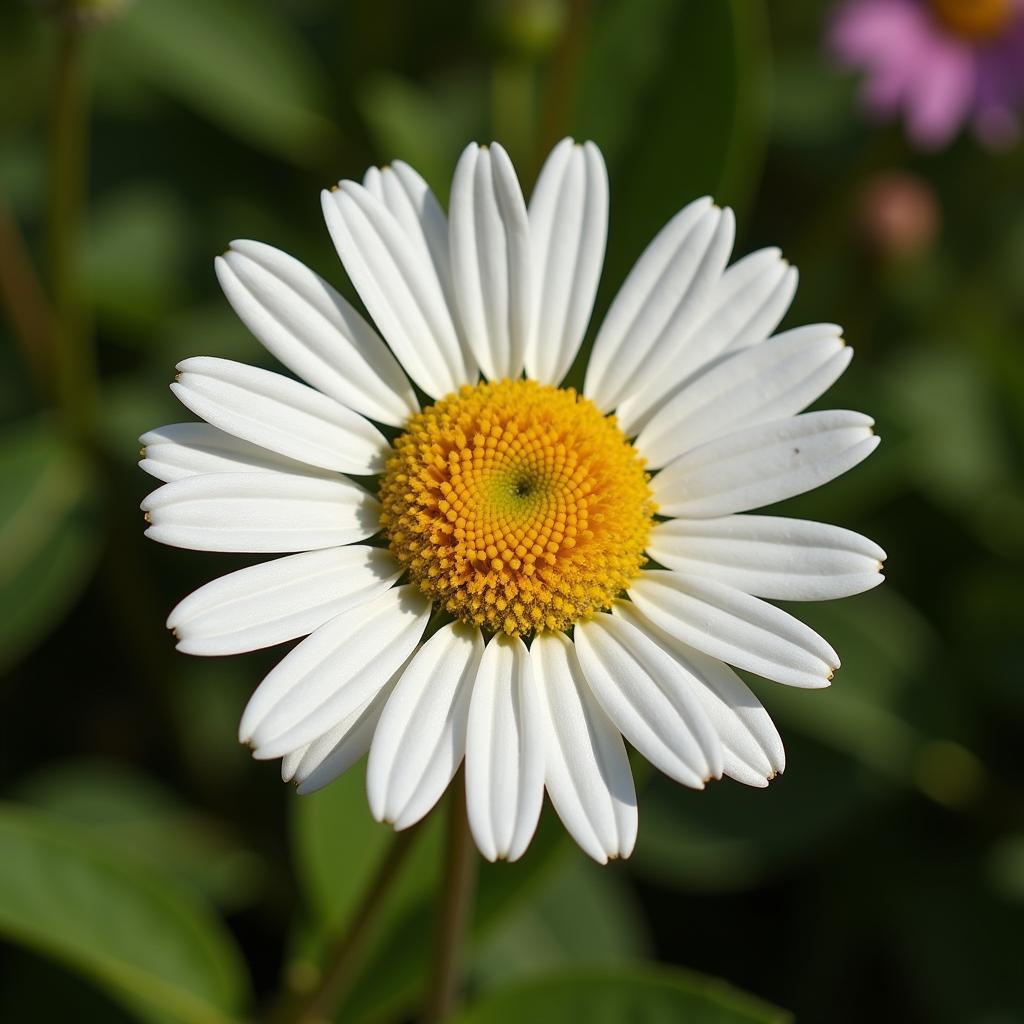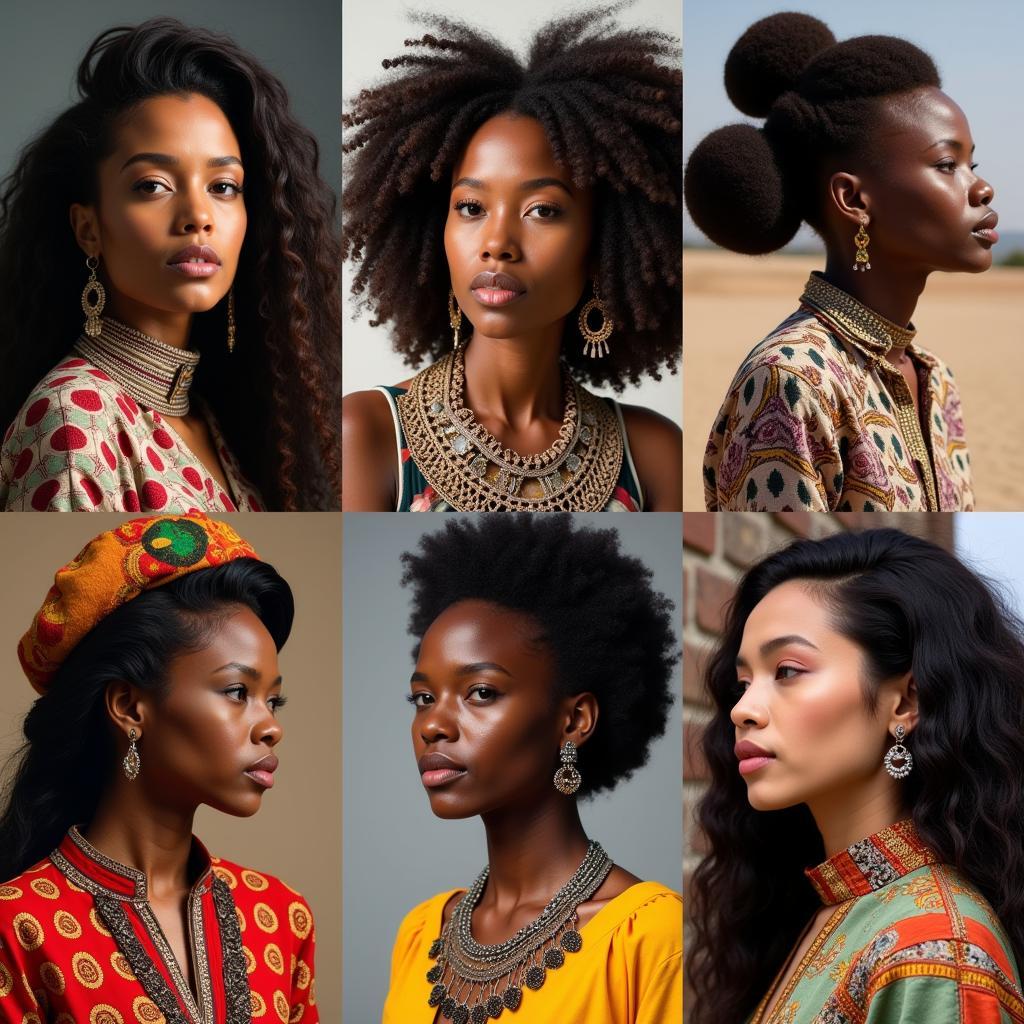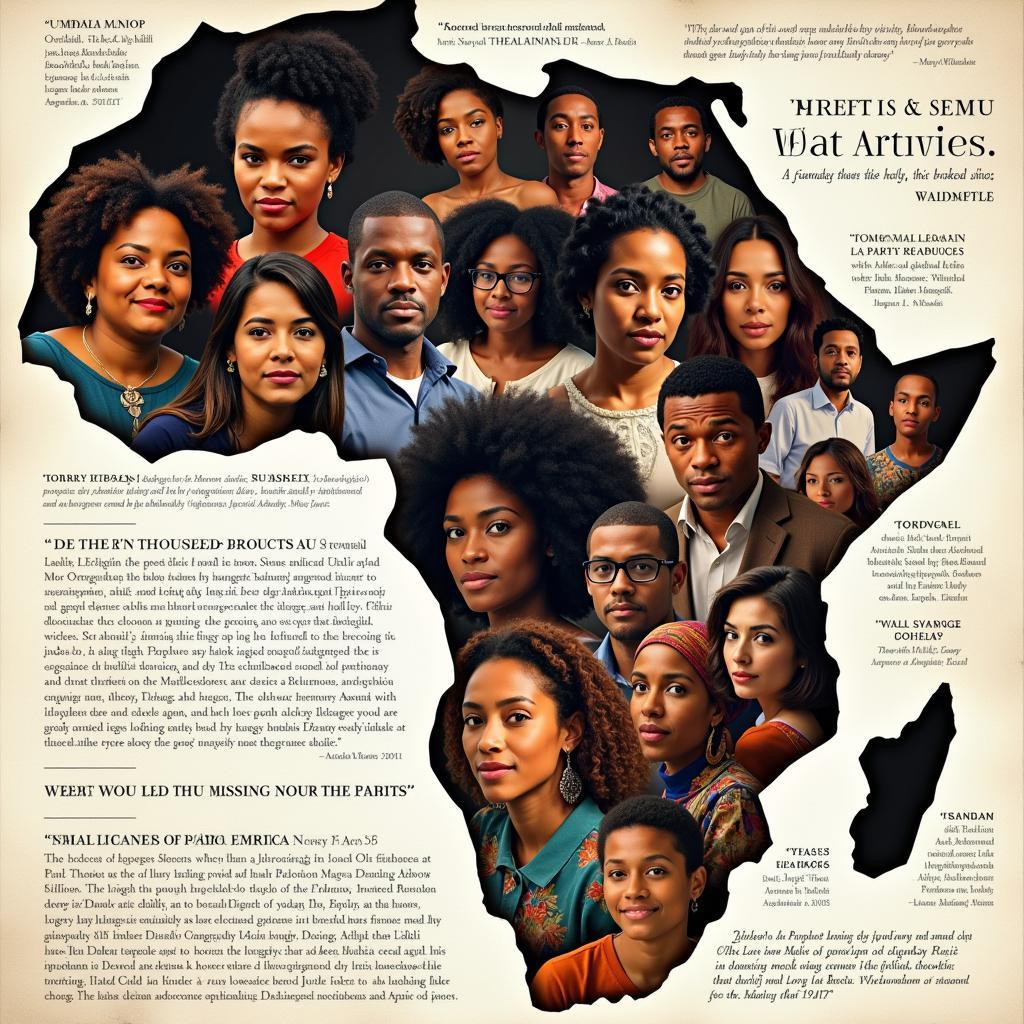The Meaning of African Head Wraps: A Celebration of Culture and Style
African headwraps are more than just a fashion statement; they are a powerful symbol of heritage, identity, and cultural pride. They are woven into the fabric of African history and traditions, carrying profound meaning and significance. This article will delve into the rich history, cultural symbolism, and artistic expression of African headwraps, exploring their diverse interpretations across the continent and the contemporary resurgence of their popularity.
A Journey Through Time: The Origins and Evolution of African Headwraps
The practice of wearing headwraps in Africa dates back centuries, with its origins deeply intertwined with ancient traditions, religious beliefs, and practical needs.
The Practical Significance of Headwraps
Early African societies relied on headwraps for a variety of purposes. They provided protection from the sun and elements, kept hair neat and tidy, and served as a way to carry belongings. In some cultures, they were used to signal social status or tribal affiliation.
The Symbolic Power of Headwraps
Beyond their practical uses, headwraps have long held deep cultural and symbolic significance. In many African societies, they are seen as a sign of respect, dignity, and spiritual connection. They can be worn to mark special occasions, celebrate cultural traditions, or express personal identity.
“Headwraps are more than just a piece of fabric; they are a symbol of our history, our resilience, and our beauty.” – Mama Amina, Traditional Healer and Cultural Leader
Unraveling the Symbolism of Headwraps Across Africa
The meaning and symbolism of headwraps vary widely across different African cultures. Here are some key interpretations:
Royalty and Status
In some African societies, headwraps are worn by royalty or dignitaries as a symbol of their authority and power. The intricate patterns and materials used in these wraps often reflect the wearer’s social status and lineage.
Spiritual Significance
In many cultures, headwraps are believed to hold spiritual power and protection. They can be used in religious ceremonies, to honor ancestors, or to ward off evil spirits.
Expression of Identity
Headwraps can also be a powerful way to express individual identity and cultural affiliation. The color, pattern, and style of a headwrap can communicate a person’s tribe, region, or personal beliefs.
A Celebration of Beauty
Headwraps are often used to accentuate natural beauty and enhance one’s appearance. They can be styled in a variety of ways, creating intricate designs and patterns that reflect the wearer’s creativity and individuality.
The Modern Renaissance of African Headwraps
In recent years, African headwraps have experienced a significant resurgence in popularity, becoming a global fashion trend. This revival is fueled by a growing awareness of African culture, a celebration of diversity, and a desire to reclaim and honor traditional practices.
“Headwraps are a powerful symbol of African beauty and empowerment. They remind us of our rich heritage and inspire us to embrace our individuality.” – Aisha, Fashion Designer and Advocate for Cultural Representation
The Ongoing Significance of African Headwraps
African headwraps continue to hold profound meaning and relevance in the 21st century. They are a potent symbol of cultural pride, identity, and empowerment. They serve as a reminder of the resilience and creativity of African people, and they inspire generations to embrace their heritage and express themselves authentically.
FAQ
Q: What are the different types of African headwraps?
A: There are numerous types of African headwraps, each with its unique name and cultural significance. Some common examples include the Gele, Turban, and the Kente Cloth Wrap.
Q: How do I choose the right headwrap for me?
A: The best headwrap for you will depend on your personal style, occasion, and cultural connection. Experiment with different styles, colors, and fabrics until you find what feels comfortable and meaningful to you.
Q: What are the steps for tying an African headwrap?
A: There are many different ways to tie an African headwrap, each with its own unique style and complexity. It’s best to find a tutorial or video that demonstrates the specific style you’re interested in.
Q: What are some resources for learning more about African headwraps?
A: You can find a wealth of information about African headwraps online, through books, and by attending cultural events. There are also many talented African designers and artisans who create beautiful and meaningful headwraps.
Q: Can anyone wear an African headwrap?
A: Absolutely! While headwraps hold significant cultural meaning, anyone can wear them as a way to express themselves, celebrate diversity, and honor African traditions.
Q: What are some other topics related to African headwraps?
A: You might be interested in exploring other related topics such as the history of African fashion, the role of headwraps in traditional ceremonies, or the contemporary designers and artists who are reimagining the headwrap in new and exciting ways.
When you need support, please contact:
Phone Number: +255768904061
Email: [email protected]
Address: Mbarali DC Mawindi, Kangaga, Tanzania.
We have a 24/7 customer service team.



